Why Karens Are Problematic: Unpacking Entitlement and Injustice
Category: Social Issues
Understanding the Problem with 'Karens': A Cultural and Social Critique
If you’ve found yourself frustrated by seemingly entitled, disruptive individuals known colloquially as "Karens," you’re not alone. This post resonates deeply with readers who are socially conscious and seeking clear explanations for why these behaviors spark social injustices and unfairness. Whether you’ve encountered a "Karen" firsthand at a store or witnessed viral incidents online stirring public debate, you’re here to grasp the bigger picture—why this phenomenon is more than just annoying, and how it intersects with issues of privilege, power, and systemic inequality.
You likely came here trying to understand what fuels this entitlement, how it impacts marginalized groups, and why it causes genuine harm beyond isolated moments of rudeness. This article breaks down the problem from multiple angles, avoiding shallow judgments or memes, and instead offering a structured critique of entitlement culture and the social dynamics Karens embody. Unlike many posts that merely mock or label, this content dives into the societal roots of these behaviors and their wider consequences, ensuring readers like you gain a comprehensive, insightful view. If you’re looking for a clear, thoughtful exploration that aligns with your awareness of social justice and cultural accountability, this post is crafted specifically for you. Dive in to uncover why Karens are problematic and what that means for societal fairness and respect.
- Understanding the Problem with 'Karens': A Cultural and Social Critique
- Defining 'Karen': Origins and the Evolution of a Cultural Meme
- Key Characteristics of Karen Behavior: Entitlement, Disruption, and Privilege
- The Impact of Karen Behavior on Marginalized Communities
- How Karens Perpetuate Social Injustices and Structural Inequality
- The Psychology Behind Entitlement and Its Social Manifestations
- Real-Life Examples: When Karen Behavior Escalates to Public Harm
- Media and Viral Culture: Amplifying the Karen Phenomenon
- Critiques and Counterarguments: Understanding Nuance Without Excusing Harmful Behavior
- Empowering Bystanders and Communities to Address Karen Behavior
- Strategies for Reducing Entitlement and Promoting Social Equity
Defining 'Karen': Origins and the Evolution of a Cultural Meme
The term "Karen" has evolved from an obscure name to a widely recognized cultural meme representing a specific set of behaviors tied to entitlement, privilege, and social disruption. Originally popularized on social media platforms in the mid-2010s, "Karen" was used as a shorthand for individuals—usually white middle-aged women—who exhibit demanding, unreasonable, or prejudiced attitudes, often at the expense of others. While the name itself is generic, the meme encapsulates a recognizable pattern of behavior: demanding to “speak to the manager,” leveraging social status to intimidate service workers, and aggressively enforcing personal biases under the guise of moral righteousness.
From Internet Joke to Serious Social Commentary
What began as a humorous stereotype soon transformed into a powerful tool for calling out systemic privilege and abuse of power. The “Karen” meme highlights how these behaviors are not merely individual quirks but manifestations of deeper social dynamics, including:
- White entitlement: Exercising privilege resulting from race and socioeconomic status.
- Resistance to authority when convenient: Ignoring rules or fairness unless it aligns with their demands.
- Weaponizing victimhood: Portraying oneself as wronged or oppressed to justify aggressive behavior or to silence others.
This progression from meme to meaningful critique underscores how the “Karen” phenomenon reveals ongoing social injustices and uneven access to power in everyday interactions. By unpacking the origins of the term and its evolution, it becomes clear that the problem is not simply about rude behavior, but a larger commentary on societal structures that tolerate and even enable such entitlement. Understanding this context is crucial for recognizing why the term "Karen" resonates deeply in conversations about fairness, equity, and accountability in modern society.

Image courtesy of Antoni Shkraba Studio
Key Characteristics of Karen Behavior: Entitlement, Disruption, and Privilege
At the core of the "Karen" phenomenon are distinct behavioral traits that not only reflect personal attitudes but also embody broader social issues tied to entitlement and privilege. Understanding these key characteristics sheds light on why Karens are more than just difficult individuals—they are agents of disruption that amplify systemic unfairness and social inequality.
Entitlement: The Unquestioned Expectation of Preferential Treatment
Karens often display an unearned sense of entitlement, believing that their needs and preferences should always take precedence over those of others. This mindset manifests in demands for exceptional service, bypassing established rules or social norms simply because they perceive themselves as inherently deserving. Whether it’s expecting priority treatment in a store or seeking special exceptions in public spaces, this entitlement is rooted in unconscious assumptions of superiority, frequently tied to race, socioeconomic status, or cultural dominance.
Disruption: Instigating Conflict and Undermining Fairness
Far from being passive annoyances, Karens actively stir up conflict through disruptive behaviors such as loudly challenging employees, escalating minor grievances, or weaponizing authority to intimidate marginalized groups. This disruption often leads to unfair outcomes by distracting from constructive dialogue and escalating tensions unnecessarily. Their actions can cause real-world consequences, including denying service to others, fostering workplace stress, and reinforcing hostile environments where marginalized voices are silenced or dismissed.
Privilege: Leveraging Social and Institutional Power Unfairly
Underlying many Karen behaviors is a reliance on unacknowledged privilege—especially racial and class privilege—to assert power over others. This privilege enables them to bypass consequences that others might face, such as being held accountable for inappropriate conduct or having their complaints scrutinized. This dynamic not only perpetuates systemic inequities but also exemplifies how social hierarchies operate in everyday encounters, where those with privilege feel entitled to police or police others, often under the guise of maintaining order or “doing the right thing.”
By recognizing these key traits—entitlement, disruption, and privilege—readers can better understand the systemic impact of Karen behavior. This is not about isolated rudeness; it’s about how such behaviors uphold and reproduce injustice and unfairness in daily life, entrenching inequality at interpersonal and institutional levels. Addressing these characteristics critically is essential for fostering a more equitable society where respect and fairness are genuinely accessible to all.

Image courtesy of Photo By: Kaboompics.com
The Impact of Karen Behavior on Marginalized Communities
The behavior commonly associated with "Karens" does not occur in a vacuum—it disproportionately harms marginalized communities by reinforcing existing social inequalities and creating environments of exclusion and fear. When entitlement and privilege are weaponized, the consequences extend far beyond individual incidents, perpetuating systemic injustice that limits access, safety, and dignity for vulnerable groups.
Discrimination and Microaggressions Amplified
Karens often act as enforcers of social hierarchies, calling authorities or management on people of color, immigrants, LGBTQ+ individuals, and other marginalized groups over trivial or fabricated complaints. These actions constitute microaggressions that degrade and stigmatize, reinforcing harmful stereotypes and deepening social divides. The constant scrutiny and mistrust implied by Karen behavior can lead to:
- Emotional distress: Targeted individuals frequently suffer anxiety, fear, or humiliation, which can have long-term psychological effects.
- Unequal treatment: By exploiting their social privilege, Karens often cause service denial or unwarranted punishment of marginalized people in public spaces.
- Social isolation: Marginalized community members may withdraw from public participation to avoid confrontations, reducing their sense of belonging and agency.
Erosion of Trust in Institutions and Shared Spaces
Beyond individual harm, Karen behavior undermines the collective trust necessary for equitable participation in society. When service workers or law enforcement respond to entitlement-driven complaints instead of focusing on genuine issues, it skews institutional priorities away from fairness and toward maintaining power imbalances. This leads to:
- Disproportionate surveillance: Marginalized communities become over-policed or unfairly targeted under the pretext of responding to Karen complaints.
- Structural barriers: The misuse of authority and privilege can restrict access to housing, employment, education, and other essential resources for vulnerable populations.
- Normalization of bias: Repeated incidents reinforce prejudiced norms, making discriminatory behavior seem acceptable or unavoidable.
By understanding how Karen behavior actively perpetuates racial, social, and economic injustices, we recognize it as a critical issue demanding accountability and cultural change. Addressing this problem is essential to dismantling systemic barriers and fostering inclusive communities where equity replaces entitlement.
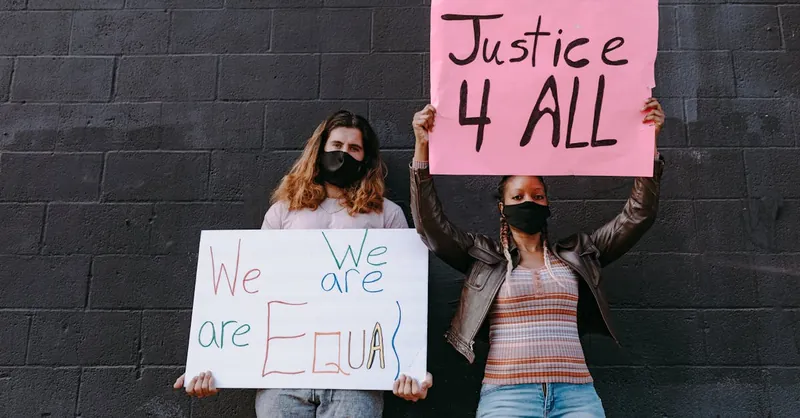
Image courtesy of RDNE Stock project
How Karens Perpetuate Social Injustices and Structural Inequality
Karens do more than just cause momentary disruptions; their behaviors actively reinforce social injustices and deepen structural inequalities embedded within society. By leveraging unchecked entitlement and privilege, they sustain harmful power imbalances that disproportionately affect marginalized communities. This perpetuation occurs through several interlinked mechanisms:
-
Maintaining Systems of Racial and Social Hierarchy
Karens often function as informal enforcers of social order that privileges whiteness and affluence. Their frequent calls to authorities or demands for punitive action disproportionately target people of color and the economically disadvantaged, reproducing historical patterns of discrimination and exclusion. This dynamic upholds racial segregation in public spaces and contributes to ongoing surveillance and criminalization of marginalized groups. -
Exerting Institutional Influence Through Complaints and Threats
By weaponizing their social standing, Karens pressure institutions—whether retail businesses, law enforcement, or housing authorities—to act in ways that benefit them while disadvantaging others. Their complaints often result in dismissing legitimate claims by marginalized individuals or triggering punitive responses that amplify existing inequities. This misuse of institutional power obstructs fair treatment and equal access to opportunities. -
Normalizing Entitlement as a Cultural Norm
Through repeated expressions of entitlement, Karens normalize the expectation that certain individuals deserve special treatment based on race, class, or social status. This normalization bolsters a cultural environment where inequality is invisible or accepted, making it difficult to challenge systemic unfairness. The psychological impact of this normalization undermines collective efforts toward equity by legitimizing discriminatory behavior as “justifiable” or “standard.”
In essence, Karen behavior acts as a reinforcing agent of structural inequality, not merely as isolated acts of incivility. Understanding this connection highlights why tackling Karen entitlement is crucial for broader social justice efforts, as it unveils how everyday interactions contribute to maintaining unfair power dynamics and obstructing progress toward an inclusive society.
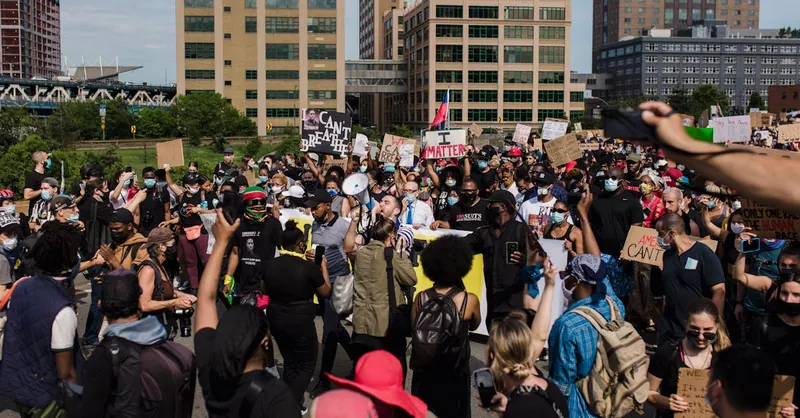
Image courtesy of Life Matters
The Psychology Behind Entitlement and Its Social Manifestations
To fully grasp why Karens behave in ways that are both socially disruptive and unfair, it is essential to explore the psychological roots of entitlement and how these internalized beliefs manifest publicly. Entitlement, in psychological terms, refers to a pervasive and unjustified sense of deservingness, where individuals believe they are inherently entitled to special privileges or treatment without corresponding merit or effort. This mindset often stems from a combination of upbringing, social conditioning, and cultural reinforcement that privileges certain identities over others.
Psychological Drivers of Entitlement
Several psychological factors contribute to the development and expression of entitlement behaviors typical of Karens:
-
Narcissistic Traits
Many entitlement-driven behaviors reflect narcissistic tendencies, such as inflated self-importance and a lack of empathy. Individuals exhibiting these traits prioritize their own needs while dismissing or devaluing others, leading to aggressive or domineering interactions. -
Cognitive Biases and Confirmation Bias
A Karen’s mindset is often shaped by confirmation bias: they selectively attend to experiences that reinforce their belief that they deserve preferential treatment and dismiss feedback that challenges their superiority. This closed loop sustains and strengthens entitlement over time. -
Learned Social Privilege
Growing up in environments where privilege is normalized teaches individuals to expect advantages as their baseline experience. When these expectations are challenged, entitlement responses are triggered as a defense mechanism to maintain their perceived social dominance.
Social Manifestations and Consequences
Entitlement psychology does not remain internal but distinctly influences social behavior, contributing to patterns that reinforce systemic inequities:
- Demanding Unfair Special Treatment: Entitled individuals expect exceptions to rules designed for communal fairness, undermining social cohesion and equity.
- Victim Mentality Coupled with Aggression: By framing themselves as victims of inconvenience or disrespect, Karens justify hostile behaviors that, paradoxically, inflict harm on others.
- Intolerance to Boundaries and Rules: Entitlement fosters resistance to societal norms, regulations, or authority figures, especially when these limit personal desires or privileges.
These psychological dynamics make Karen behaviors particularly harmful because they sustain cycles of injustice that privilege a narrow segment of society. Recognizing the psychological underpinnings of entitlement equips us to better identify, challenge, and dismantle the social patterns that embolden such problematic conduct, advancing a culture of accountability and fairness.

Image courtesy of Mikhail Nilov
Real-Life Examples: When Karen Behavior Escalates to Public Harm
The problematic behaviors exhibited by Karens do not always remain confined to minor inconveniences or personal conflicts—they often escalate into situations that cause significant public harm, particularly when their entitlement blinds them to the real-world consequences of their actions. These incidents vividly illustrate how Karen behavior extends beyond rude interactions, creating dangerous environments and perpetuating injustice on a broader social scale.
Escalation to Public Safety Risks
One of the most alarming outcomes of Karen conduct is the propensity to escalate minor disputes into public safety threats. For instance, numerous documented cases show entitlement-driven complaints leading to unnecessary police involvement over trivial matters. This not only wastes public resources but also disproportionately endangers marginalized individuals, especially people of color, who face heightened risks of violence or wrongful arrest during these escalations. Karens’ misuse of emergency or law enforcement systems underscores how their unchecked entitlement fosters social harm beyond immediate confrontations.
Examples of Disproportionate Impact
-
False Reporting and Racial Profiling
A recurring pattern involves Karens calling the police based on racially biased assumptions—such as falsely accusing Black individuals of theft or loitering in their own neighborhoods or stores. These actions fuel systemic racism and contribute to the criminalization of everyday behaviors by marginalized groups, reinforcing cycles of injustice and fear. -
Public Disruptions That Endanger Workers and Communities
Beyond law enforcement, Karen behavior in public settings—like refusing to comply with health regulations during pandemics or aggressively confronting service staff—can escalate tensions, trigger unsafe confrontations, and even cause workplace closures. Such disruptions affect not only employees but also other patrons and community members who rely on safe, equitable access to services. -
Undermining Trust in Institutions
When entitlement-driven complaints dominate institutional responses, they divert attention and resources from genuine concerns, ultimately weakening public trust. This erosion of trust has long-term consequences, harming societal cohesion and compromising the effectiveness of systems designed to protect fairness and safety.
Understanding these real-life examples reveals the gravity of Karen behavior as not merely a social annoyance but as a catalyst for public harm and systemic injustice. Addressing and holding accountable such behavior is crucial in mitigating its broader impact on vulnerable communities and the social fabric at large.
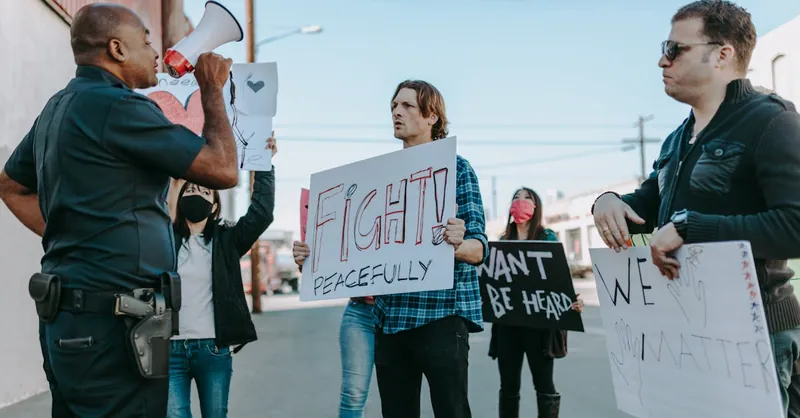
Image courtesy of RDNE Stock project
Media and Viral Culture: Amplifying the Karen Phenomenon
The Karen phenomenon has been significantly magnified by media coverage and viral culture, transforming individual incidents into widespread social discourse and often sensationalized narratives. Social media platforms like Twitter, TikTok, and YouTube serve as powerful amplifiers, rapidly spreading videos and stories of Karen behavior to millions of viewers. This amplification fuels public awareness but also complicates how the phenomenon is understood and addressed.
Viral Videos: Spotlighting Entitlement and Ignorance
Viral videos capturing Karen incidents often highlight moments of blatant entitlement, racial bias, or disruptive confrontation. These clips become cultural reference points, illustrating the damaging social impact of unchecked privilege. However, while viral exposure raises important issues, it also risks simplifying complex social dynamics into meme-like caricatures. The viral culture surrounding Karens tends to:
- Sensationalize conflict over nuanced conversations about systemic inequality.
- Promote performative outrage, where public reactions focus on entertainment rather than critical engagement.
- Overshadow deeper analysis of the root causes of entitlement and structural injustice.
Media’s Role in Shaping Public Perception
Traditional media outlets also play a significant role by reporting on Karen incidents, often framing them as emblematic of broader societal problems such as racism, sexism, and classism. This coverage can be a double-edged sword—it brings necessary attention to problematic behavior and systemic issues but can sometimes inadvertently reinforce stereotypes or trivialize the lived experiences of marginalized groups.
The Feedback Loop Between Media and Behavior
The viral and media attention creates a feedback loop where individuals exhibiting Karen-like behavior may become more emboldened, expecting public sympathy or validation. Conversely, those targeted or accused may feel their experiences are reduced to viral spectacles, diminishing their agency and privacy. This dynamic complicates efforts to encourage genuine accountability and cultural change.
In sum, the intersection of media and viral culture has transformed Karen behavior from isolated incidents into a symbol of entitlement and social injustice. This amplification demands responsible media practices and critical public discourse to move beyond viral outrage and toward meaningful understanding and systemic reform.

Image courtesy of Suki Lee
Critiques and Counterarguments: Understanding Nuance Without Excusing Harmful Behavior
While the term "Karen" has become a widely accepted shorthand for describing entitlement and privilege, it is important to acknowledge critiques and counterarguments to avoid oversimplification or unfair generalizations. Some argue that labeling individuals as "Karens" risks reducing complex social interactions to stereotypes, potentially dismissing legitimate concerns or misunderstanding context. Indeed, not all assertive behavior or complaints stem from malicious entitlement—there are scenarios where speaking up is justified and necessary.
However, understanding these nuances should never be used to excuse harmful patterns that disproportionately reinforce injustice and inequality. The key distinction lies in recognizing when assertiveness crosses into disruptive entitlement that leverages social privilege at the expense of others. By carefully differentiating between reasonable advocacy and Karen-like conduct, we maintain a critical lens that holds accountability without erasing legitimate voices.
Key Points to Consider
- Not every complaint is a Karen moment: It is vital to evaluate context, intent, and impact rather than assuming entitlement based on appearance or demographic factors alone.
- Awareness of intersectionality and power dynamics: Some individuals labeled as "Karens" may themselves experience marginalization; thus, entitlement discourse should remain sensitive to overlapping identities.
- The importance of accountability: Understanding nuance does not negate the damage caused by behaviors that perpetuate systemic unfairness, mistrust, or harm.
- Encouraging constructive dialogue over vilification: Critiques serve best when they promote learning, reform, and empathy rather than mere ridicule or silencing.
In embracing these points, readers can appreciate the complexity surrounding Karen behavior without minimizing its real social consequences. This balance fosters a more effective cultural critique—one that challenges entitlement and privilege while upholding fairness, respect, and critical understanding across social divides.
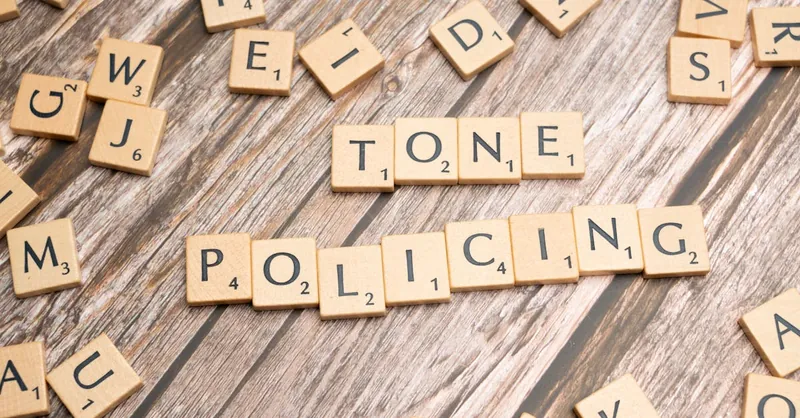
Image courtesy of Markus Winkler
Empowering Bystanders and Communities to Address Karen Behavior
Combating the widespread impact of Karen behavior requires more than awareness—it demands active empowerment of bystanders and communities to intervene and challenge entitlement in everyday contexts. When individuals witness Karen-like conduct, whether in retail settings, public spaces, or online, their responses can either enable problematic patterns or contribute to collective accountability that promotes fairness and equity. Empowering bystanders is essential to disrupt cycles of entitlement and privilege that perpetuate social injustice.
Practical Steps for Bystander Intervention
Bystanders play a crucial role in shifting the social norms that allow Karen behavior to flourish. Effective intervention involves:
- Recognizing Karen behavior clearly—not confusing legitimate grievances with entitlement-driven disruption.
- Speaking up respectfully to de-escalate conflicts while affirming the rights and dignity of those targeted.
- Supporting marginalized individuals by offering solidarity and validating their experiences without centering the Karen’s narrative.
- Using institutional resources wisely, such as reporting abuse to management or community organizations instead of defaulting to policing systems that may exacerbate harm.
- Creating safe spaces for dialogue that educate and raise awareness about entitlement and privilege within local communities.
Building Community Resilience Against Entitlement
Beyond individual actions, communities can foster environments that discourage Karen-like behaviors by:
- Promoting shared values of respect, equity, and accountability in workplaces, schools, and neighborhood groups.
- Developing educational programs and workshops that unpack entitlement culture and encourage empathy.
- Implementing clear policies against harassment and discrimination that hold all members accountable regardless of social status.
- Encouraging collective advocacy to address systemic issues that enable entitlement, such as biased institutional practices and unchecked privilege.
Empowered bystanders and proactive communities create a powerful counterbalance to Karen behavior, undermining entitlement’s social acceptability and reinforcing a culture of justice and mutual respect. Transforming reactive frustration into strategic intervention signals a critical step toward dismantling the systemic roots of entitlement and fostering genuinely inclusive public spaces.
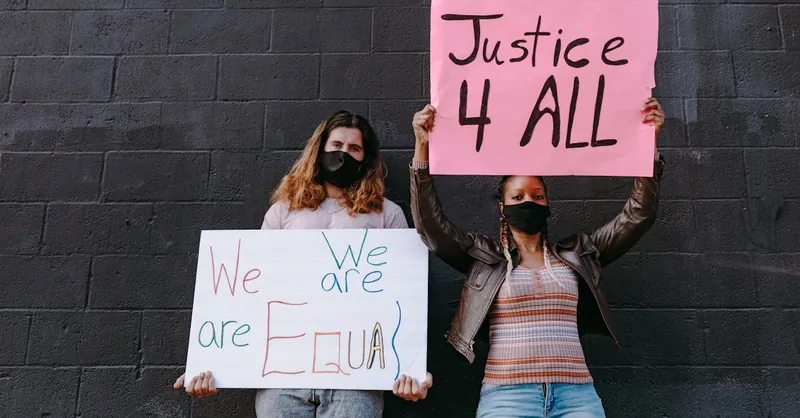
Image courtesy of RDNE Stock project
Strategies for Reducing Entitlement and Promoting Social Equity
Addressing the pervasive issue of Karen behavior requires intentional strategies that reduce entitlement culture and actively promote social equity in everyday interactions and institutional practices. These strategies are essential to dismantle the systemic advantages that enable entitlement to flourish and to cultivate a society grounded in fairness, respect, and shared responsibility.
Fostering Awareness and Education on Privilege and Entitlement
One of the most effective ways to combat entitlement is through comprehensive education that helps individuals recognize their own implicit biases and understand how privilege operates socially. Educational initiatives should focus on:
- Raising consciousness about systemic inequality: Helping people see beyond personal experiences to the broader social forces that maintain disparities.
- Encouraging self-reflection: Prompting individuals to examine how entitlement may manifest in their behavior or attitudes.
- Teaching empathy and active listening: Cultivating skills to respond thoughtfully rather than react defensively in conflict situations.
Implementing these educational efforts in schools, workplaces, and community programs creates a foundation for long-term change, shifting cultural norms away from entitlement and toward inclusivity.
Institutional Accountability and Policy Reform
Reducing entitlement also demands structural changes within institutions that too often tacitly enable Karen behaviors through unbalanced complaint procedures and inconsistent accountability measures. Key reforms include:
- Establishing transparent complaint resolution processes that protect marginalized individuals from being unjustly targeted or dismissed.
- Training staff and leadership to recognize and effectively address behaviors rooted in entitlement without escalating conflicts or perpetuating harm.
- Promoting equitable enforcement of rules and policies, ensuring that no one receives preferential treatment based on social status or identity.
By embedding equity as a core principle, organizations can disrupt patterns of power misuse and reduce opportunities for entitlement-driven disruptions.
Cultivating Community Norms Centered on Equity and Respect
Finally, social equity gains strength through community-driven efforts that reinforce values of mutual respect and inclusivity. Practical community-based strategies include:
- Encouraging open dialogues on privilege, power, and fairness to build shared understanding and accountability.
- Modeling equitable behavior publicly to normalize respectful interactions and discourage entitlement.
- Supporting advocacy and allyship initiatives that empower marginalized voices and challenge entitlement dynamics collectively.
These combined approaches create resilient social environments where entitlement loses its foothold, advancing equity as the default mode of interaction.
By deploying these multifaceted strategies—rooted in awareness, institutional reform, and community engagement—we can effectively reduce entitlement culture embodied by Karens and promote a more just, fair society for all.
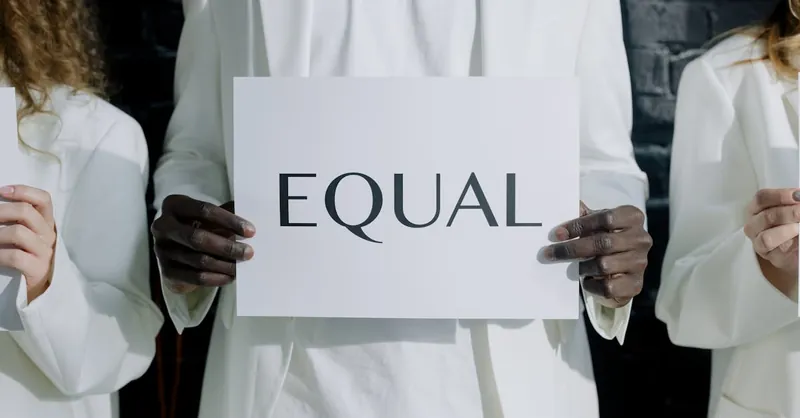
Image courtesy of cottonbro studio
